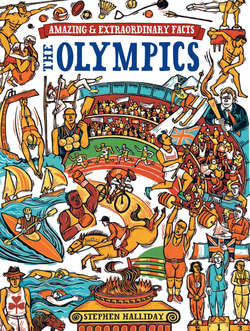Читать книгу The Olympics - Stephen Halliday - Страница 9
На сайте Литреса книга снята с продажи.
CHARLES KINGSLEY (1819–75)
ОглавлениеCharles Kingsley is best remembered for his novel The Water Babies, a moral tale, but he was strongly associated with the promotion of sport and in 1788 formed the ‘Committee for the Propagation of Physical Exercise in Education’ with himself as its secretary. He had some very strange views on improvements in sanitation and other public health measures which, he feared, would preserve unworthy specimens and lead to the degeneration of the race. He believed that vigorous exercise would ‘check the process of degradation which I believe to be going on’.
In 1875, aged 12, de Coubertin read in a children’s magazine, Journal de la Jeunesse, a story called ‘Aventures de Tom Brown à Rugby’, extracted from Thomas Hughes’s book Tom Brown’s Schooldays. In 1883, now aged 20, de Coubertin made the first of a series of annual visits to England and by 1888 had visited ten public schools, Oxford and Cambridge universities, Henley Royal Regatta and Toynbee Hall in Whitechapel. He was impressed by the central role assigned to sports such as football, rugby, cricket and rowing. In that year he wrote of English education: ‘The architecture of their Public Schools is Gothic. Their teaching is somewhat Gothic too but their education is not so at all.’ He added, ‘Two things dominate in the English system: freedom and sport... hand to hand fighting and punches, especially punches, are not without a certain usefulness in high schools. The English call boxing gloves “the keepers of the peace”.’ He referred to ‘la poussiere Olympique’ (Olympic dust) in English education. This flattering view of English education was to bear fruit in the Modern Olympics, but first de Coubertin had to meet Dr William Penny Brookes.
